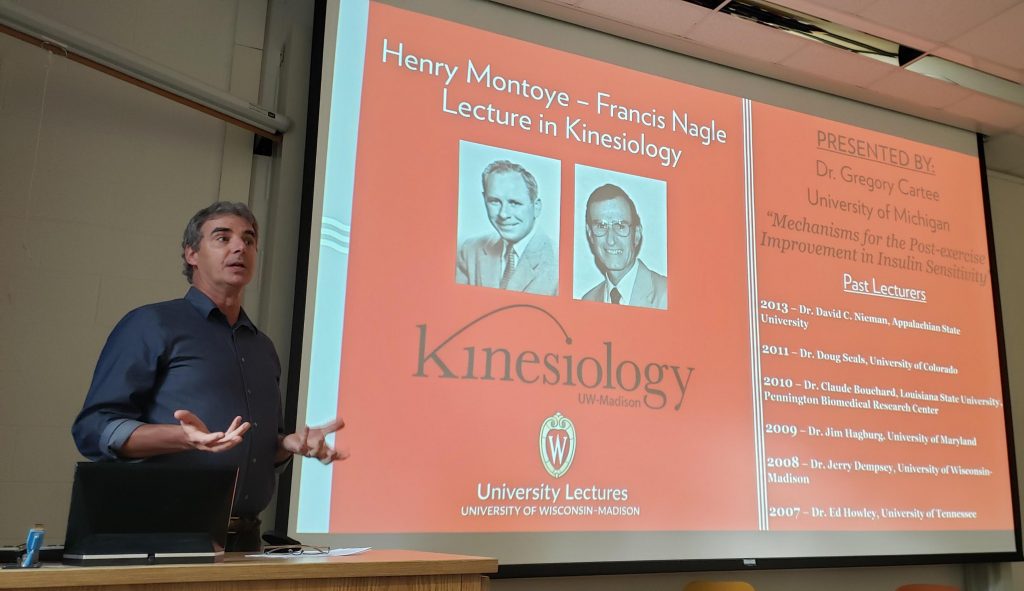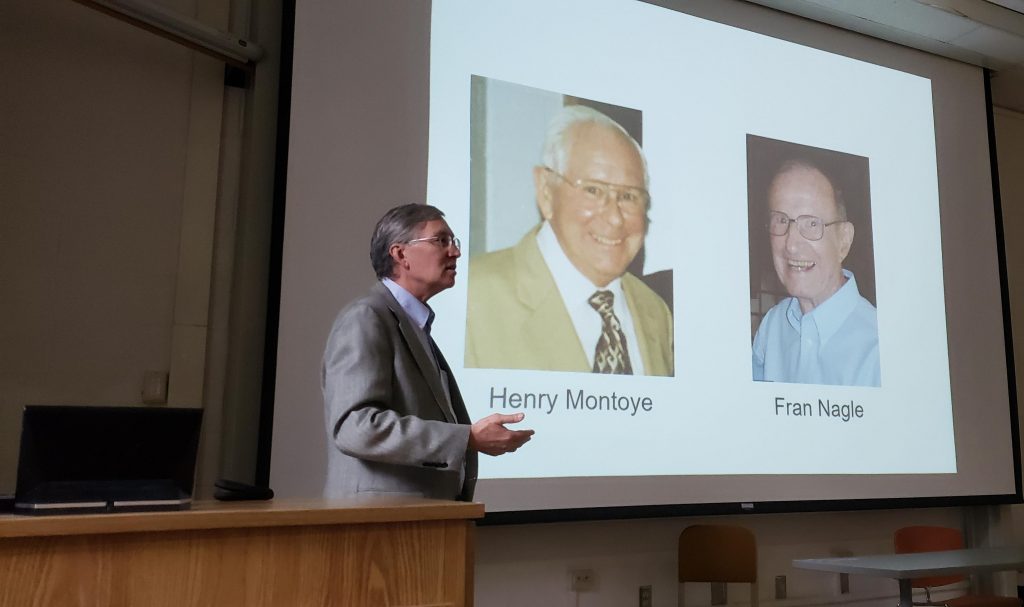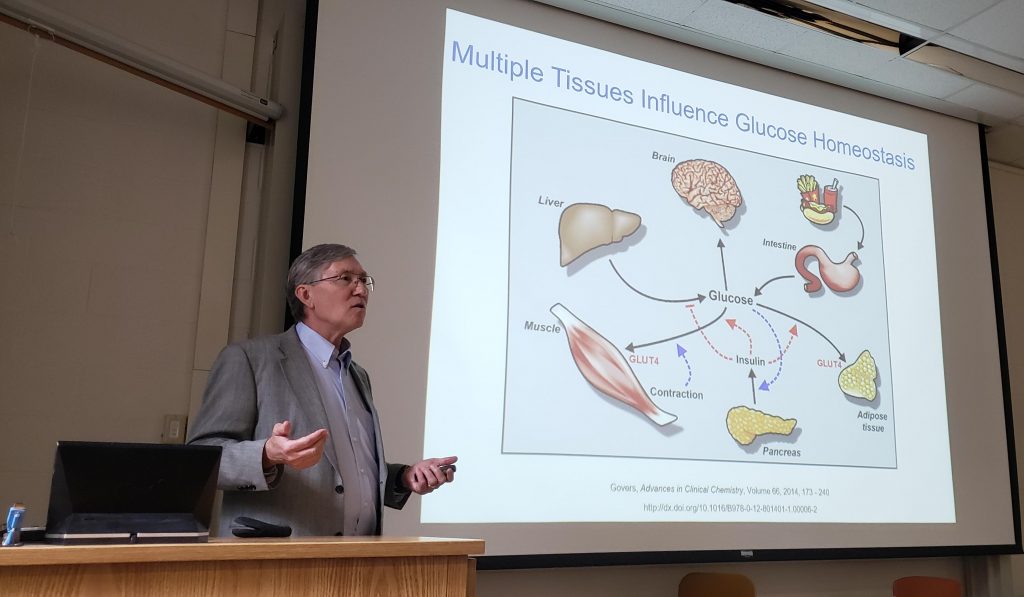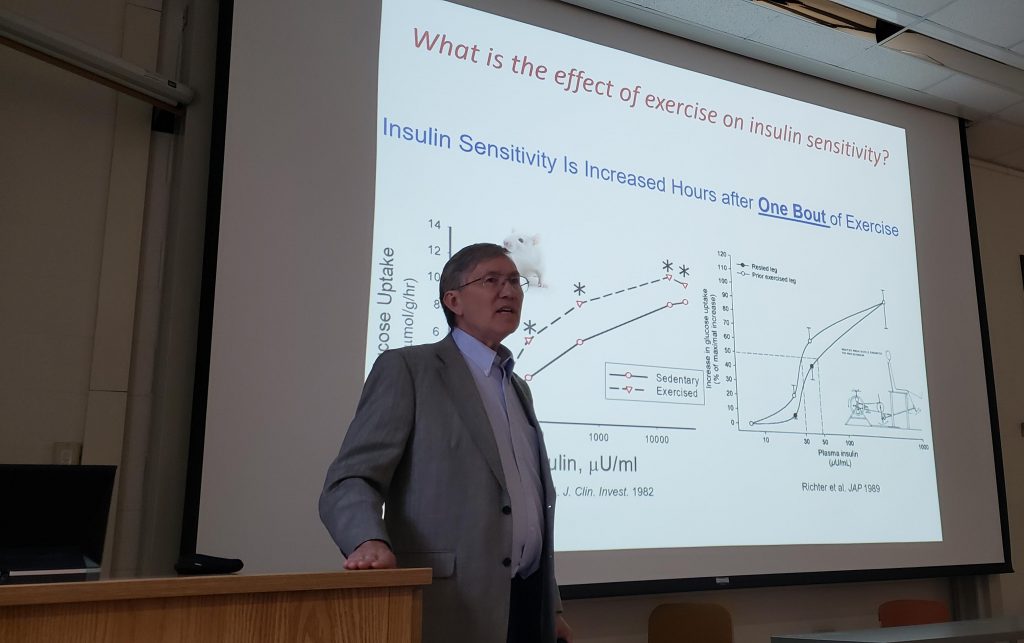



The Montoye-Nagle lecture series was established to honor the contributions to the Department of Kinesiology at UW-Madison by Professors Emeriti Henry Montoye and Francis J. Nagle. Henry Montoye was at UW-Madison from 1977 to 1989 and known for his research on the relationship between exercise & health. He served as the Chair of the then Dept. of Physical Education and Dance and the Director of the Biodynamics Laboratory. He is a past president of the American College of Sports Medicine and was named the first AAHPERD Alliance Scholar. Francis J. Nagle was a faculty member at UW-Madison from 1965 to 1989. He conducted both basic and clinical research in exercise physiology and was a pioneer in cardiac rehabilitation. He helped integrate the once-separate men’s & women’s physical education programs and was the Director of the Biodynamics Laboratory. He is a past recipient of the ACSM Citation Award.
Since 2007 we have had a great line up of speakers presenting. This year we were please to invite Dr. Gregory Cartee to present the 2019 Montoye-Nagle Lecture on Thursday, October 24th. Dr. Cartee is professor of Movement Science, associate dean for research, and the director of the Muscle Biology Laboratory in the School of Kinesiology at the University of Michigan. His lecture focused on understanding the processes that regulate insulin-stimulated glucose uptake by skeletal muscle is important because 1) muscle accounts for most insulin-mediated glucose disposal, and 2) muscle insulin resistance is a key defect in the progression to type 2 diabetes mellitus. Even in nondiabetic individuals, insulin resistance increases the risk for atherogenesis, cardiovascular disease, hypertension, cognitive dysfunction, and some cancers. Remarkably, one exercise session can result in subsequently improved insulin sensitivity, largely as consequence of increased glucose uptake by skeletal muscle. This effect can last for up to 24-48 hours. The specific mechanisms underlying this improvement remain to be fully understood, but this seminar will present my perspective about the underlying biological events that are responsible for exercise-induced effects on skeletal muscle insulin sensitivity.
Many thanks to those of you who attended the lecture!